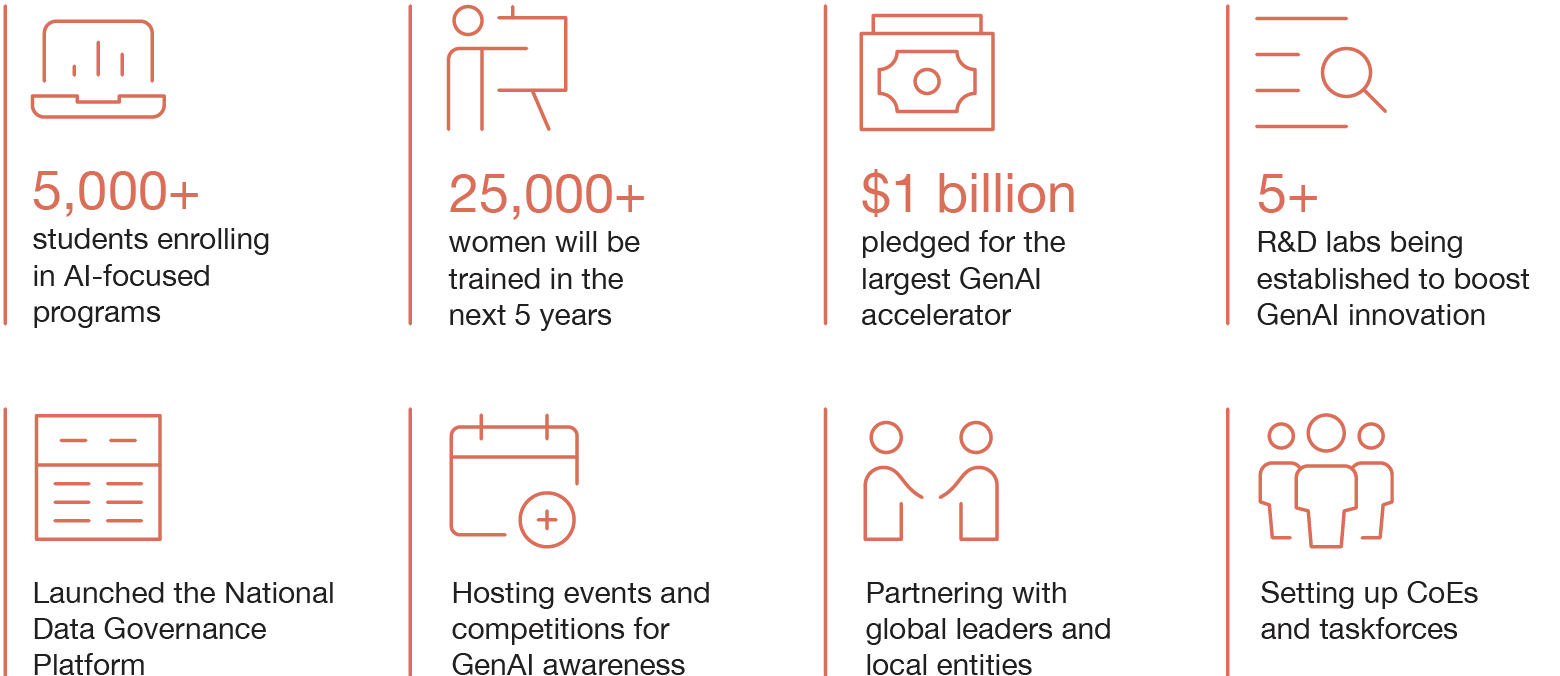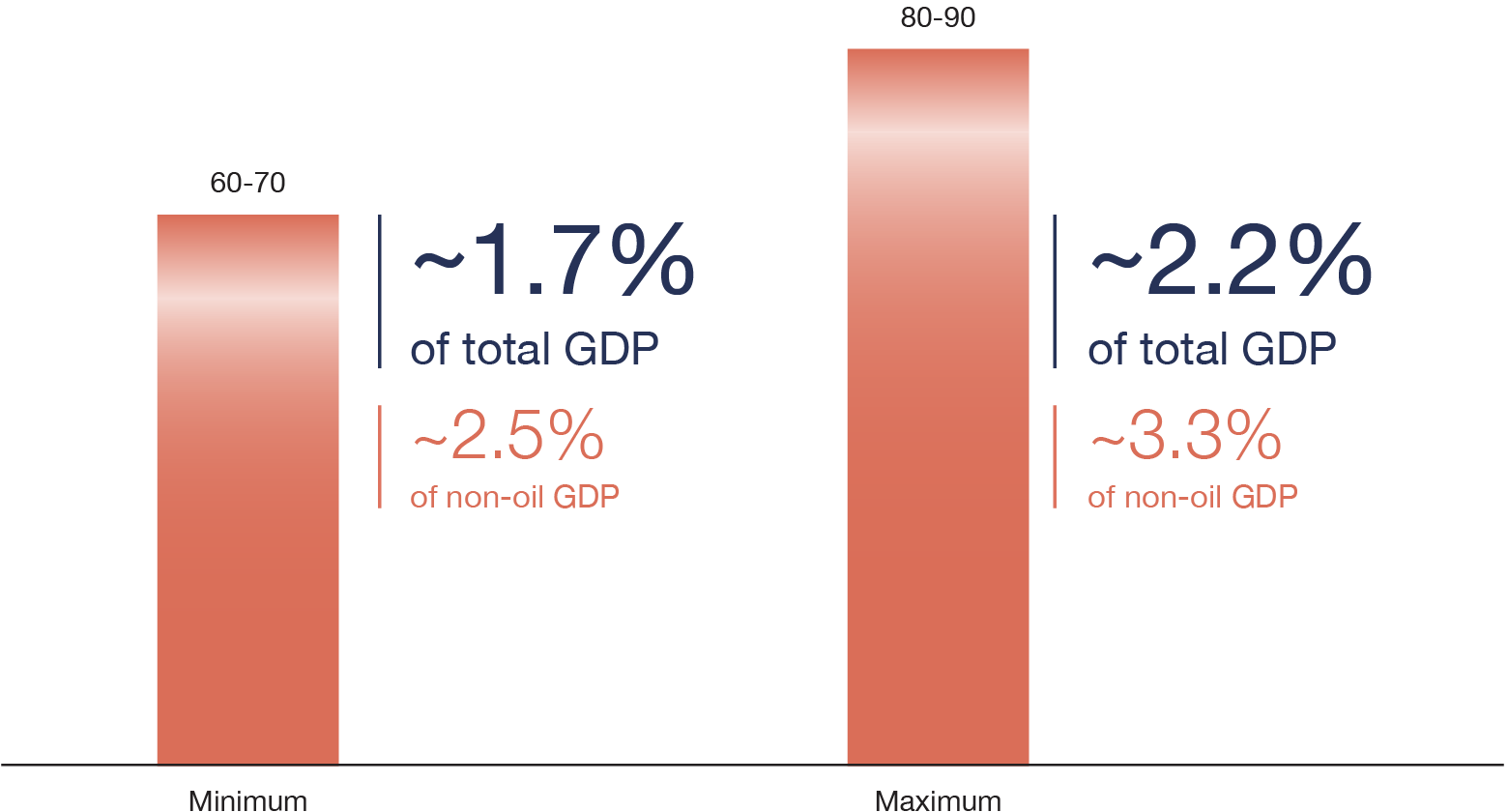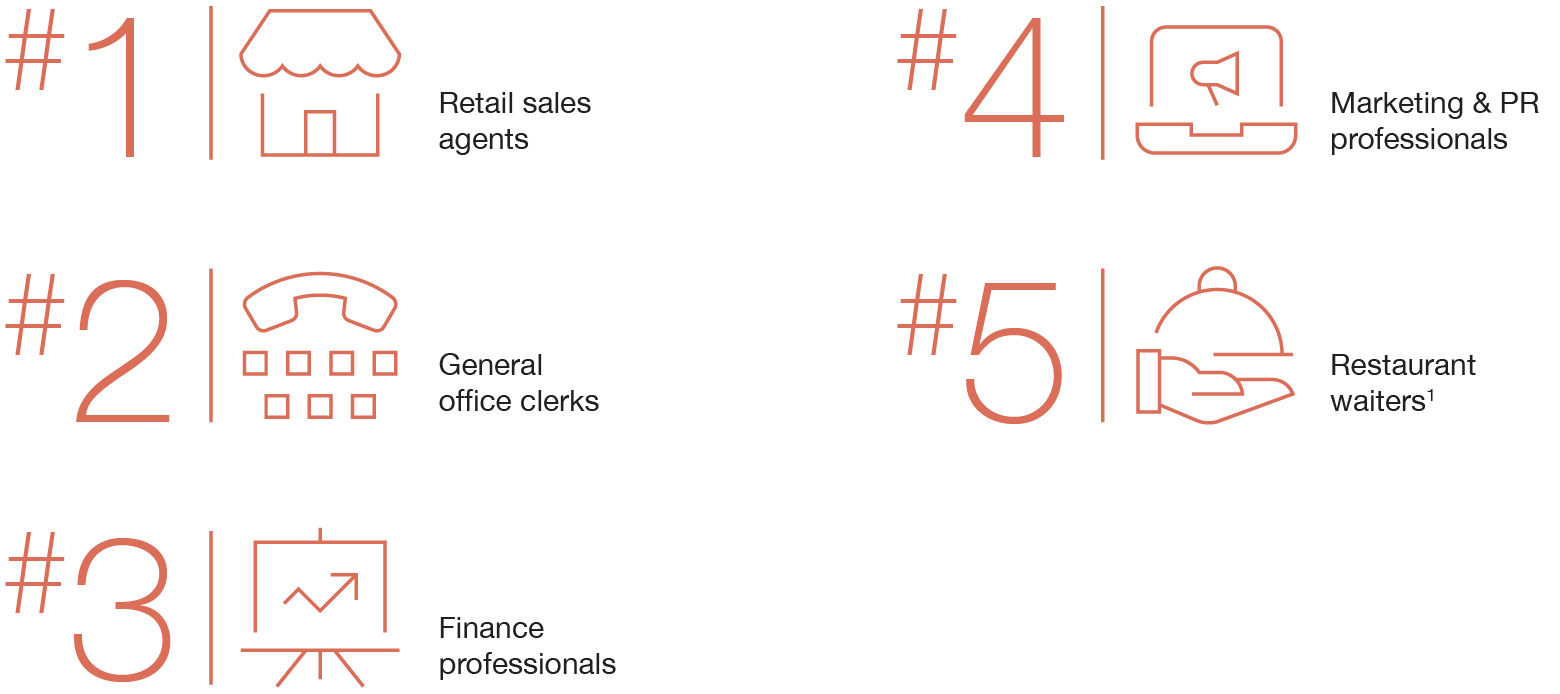The Saudi Data and Artificial Intelligence Authority (SDAIA) has been leading efforts to position Saudi Arabia as a global leader in the development and use of generative artificial intelligence (AI). This push aligns with the Kingdom’s broader Vision 2023 initiative to diversify its economy beyond oil and embrace technological advancements across various sectors. "Innovation Oasis", a report co-authored by us and SDAIA, examines the Kingdom’s generative AI strategy, focusing on possible impact and pitfalls, while providing guidance that sets the nation up for success.
Three key focus areas in Saudi Arabia's generative AI roadmap
The transformation plan outlined in the report emphasizes three primary components necessary for successful implementation of generative AI: foundational elements, technology and infrastructure, and the development of specific applications. These components are aimed at building a robust generative AI ecosystem that can support various sectors including healthcare, education, energy, and finance.
Advancing AI education and workforce diversity initiatives
Saudi Arabia has made significant strides in laying the groundwork for successful deployment of generative AI. This includes launching initiatives to raise awareness, enhance research, and improve innovation. Educational programs are being expanded to train more than 5,000 students in AI-focused courses, and plans are underway to enhance the existing workforce’s skills and attract new talent. A notable goal is the training of 25,000 women in data and AI over the next five years through the Elevate program. By giving women the skills needed to pursue jobs in emerging markets, the program also aims at closing the gender gap in science in line with the United Nations’ Sustainable Development Goals. These efforts are essential to creating a skilled workforce capable of driving generative AI advancements.

Expanding data infrastructure to power generative AI growth
Substantial investments in computing power and data infrastructure are also being made. For instance, the country invested $120 million to acquire more than 3,000 Nvidia graphics processing units, which are essential for training large-scale AI models. Additionally, the nation is focused on expanding its supercomputing capabilities and data centers, with projects like the Shaheen III supercomputer, which features 35.66 petaflops of computing power, potentially making it the Middle East’s most powerful (around 20 times faster than Shaheen II). These infrastructure developments, providing the necessary data connectivity, storage, scalability, collaboration, and real-time processing capabilities, are critical for supporting generative AI research and unlocking its full potential in various domains.

Strategic partnerships, ethics and regulatory frameworks are key to Saudi’s strategy
Saudi Arabia is actively forming strategic partnerships with global technology leaders such as IBM, Intel, and Zoom to foster innovation and knowledge exchange. The SDAIA has also developed ethical guidelines and regulatory frameworks to ensure the responsible use of AI, emphasizing data privacy and ethical standards. This regulatory focus is crucial as it aims to balance innovation with societal values, addressing potential risks associated with generative AI.
Arabic localization and cultural relevance are integral to success
Saudi Arabia is prioritizing Arabic localization to make generative AI tools more accessible and relevant to its citizens. Initiatives like the Arabic Natural Language Processing project aim to develop AI models that understand Arabic dialects, enhancing applications in education and healthcare. By focusing on language and cultural alignment, Saudi Arabia is ensuring that its AI technologies resonate with and gain trust from its local population.
Generative AI to revolutionize sectors and propel economic growth
Generative AI has the potential to significantly boost the economy by enhancing productivity and efficiency across various sectors. Our report estimates that it could contribute between SAR 60 billion to SAR 90 billion to Saudi Arabia’s gross domestic product (GDP) by 2030. Specific sectors such as healthcare are expected to benefit from improved diagnostics and personalized medicine, while the education sector could see advancements in personalized learning through AI-powered tools.

Generative AI set to redefine roles and boost workforce innovation
Generative AI is set to significantly impact the Saudi workforce, particularly in sectors such as healthcare, education, and manufacturing. Jobs involving routine tasks, like data entry and basic administrative roles, are expected to become more automated, shifting the demand toward roles that require higher cognitive skills, problem-solving, and creativity. In healthcare, AI is anticipated to support medical professionals by automating diagnostic processes and administrative tasks, allowing doctors and nurses to focus more on patient care. In education, AI will enhance personalized learning experiences, transforming the roles of educators into facilitators of technology-driven teaching methods. By reshaping these job roles, Saudi Arabia aims to increase productivity and drive innovation while preparing its workforce for a future dominated by AI technologies.

Mitigating risks and ensuring sustainable growth are critical for success
While the potential benefits of generative AI are substantial, there are several risks, including data privacy concerns, job displacement, and ethical dilemmas related to AI usage, which can be categorized under the PESTLE framework: political, economical, societal, technological, legal, and environmental.
Addressing these risks will require, among other things, robust data protection regulation, the development of tools to combat misinformation, and strategic initiatives to manage the workforce transition. The report suggests a list of mitigation actions for each risk area under the PESTLE framework, such as promoting energy-efficient computing practices to reduce carbon emissions.
Vision 2030 drives Saudi Arabia toward AI leadership
Saudi Arabia’s strategic initiatives in generative AI position it as a potential leader in the global AI landscape. The focus on building a strong foundation, investing in advanced infrastructure, and ensuring ethical AI use aligns with the broader goals of Vision 2030. As the nation continues to invest in this next-generation technology, it has the opportunity to not only boost its economy but also set a benchmark for other countries aspiring to integrate AI into their economic and social fabric.
Our report underscores that, while challenges remain, Saudi Arabia’s proactive approach in embracing generative AI, coupled with its strategic planning and substantial investments, will play a critical role in shaping the future of AI, not just within the Kingdom but on a global scale.


